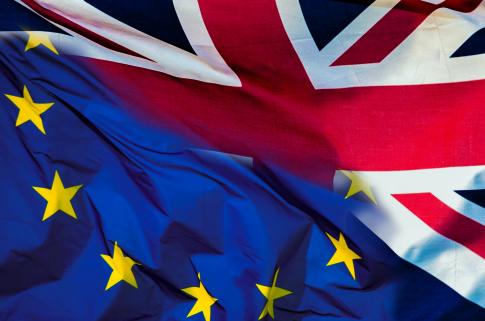Brexit...

Imports from China were worth £42.6bn, whereas exports...
A visit to China by Chancellor Phillip Hammond has been called off amid reports a speech by the UK's defence secretary angered Beijing.
There were plans for trade talks between Mr Hammond and senior Chinese government figures during the brief visit next week.
Earlier this week, Gavin Williamson had indicated the UK's intention to send an aircraft carrier to the Pacific.
An MoD source has denied the visit was scrapped because of the speech.
A Treasury spokesperson said: "No trip was ever announced or confirmed."
In the speech, Mr Williamson announced the HMS Queen Elizabeth would be deployed to the region, as well as the Middle East and the Mediterranean, on its maiden voyage.
China is currently involved in a dispute over territorial claims in the Pacific. Six countries have competing claims over the South China Sea islands.
Mr Williamson also said that China was "developing its modern military capability and its commercial power".
Unconfirmed newspaper reports claimed the Chinese government was unhappy about the speech.
But an MoD source told BBC political correspondent Ben Wright it was not the case that the speech had led to the visit being cancelled.
The speech was seen and cleared by both Number 10 and the Treasury, the source said.
"While a source has told me that no final decision has been taken on this visit, it does seem clear, at least from the Chinese side, that it is not going to happen for now," our correspondent added.
Meanwhile, former Chancellor George Osborne said he found it "very difficult" to work out the UK government's policy on China.
Westminster: "You've got the defence secretary engaging in gunboat diplomacy of a quite old-fashioned kind.
"At the same time as the chancellor of the exchequer and the foreign secretary are going around saying they want a close economic partnership with China.
"Ultimately it's the responsibility of Theresa May to sort this out. At the moment it looks all at sea."
'Golden era'
Prime Minister Theresa May visited China for three days last year in a bid to boost trade and investment.
Ahead of the trip, she said her visit would "intensify the golden era in UK-China relations".
Speaking at the time, she said she expected China to play a "huge role" in the economic development which is why she would be "deepening co-operation with China on key global and economic issues."
How important is China to the UK's economy?
UK trade with China has increased dramatically in recent years.
The government will be hoping to build on that rise after Brexit when the UK will look to complete more bilateral trade deals.
In 2018, China was the UK's fourth largest trading partner behind Germany, the US and the Netherlands, according to HMRC figures for imports and exports. UK-China trade was worth £63.4bn.
The UK ran a trade deficit of £21.8bn with the country last year.
Imports from China were worth £42.6bn, whereas exports, largely made up from car sales, were worth £20.8bn.
Thames Water, Hinkley Point nuclear power station, Scottish flight comparison site Skyscanner, Pizza Express and West Bromwich Albion FC are among those to have recently received investment from Chinese companies and entrepreneurs.
But growth in China's economy is slowing.
Official figures released last month showed its economy expanded at its slowest rate (6.6%) since 1990, while car sales in the country fell by 6% in 2018 - the first fall in two decades.
The rate of expansion has raised worries about the potential knock-on effect on the global economy.
Rival countries have wrangled over territory in the South China Sea for centuries, but tension has steadily increased in recent years.
Six countries have competing claims over the territory: China, Vietnam, the Philippines, Taiwan, Malaysia and Brunei.
They dispute who owns ocean areas, and two island chains - the Paracels and the Spratlys.
It is possible the largely uninhabited islands may have reserves of natural resources around them and the sea is also a major shipping route and home to fishing grounds that supply the livelihoods of people across the region.




 del.icio.us
del.icio.us Digg
Digg

Post your comment